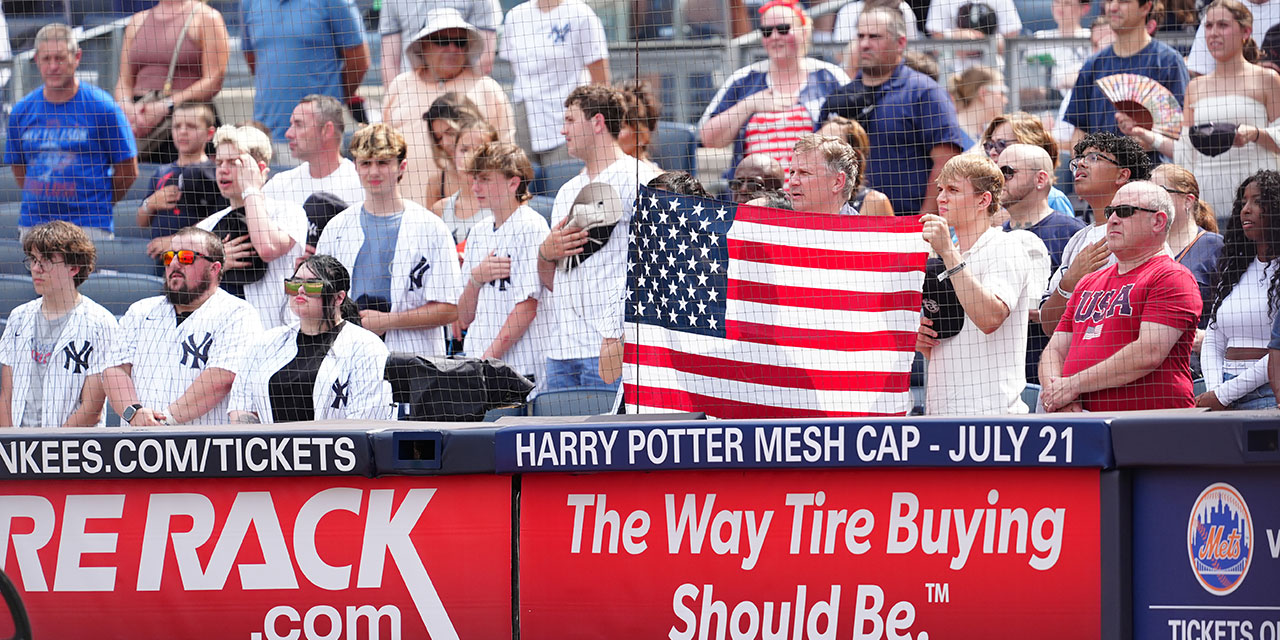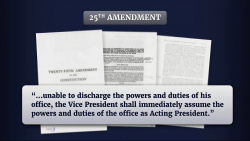
I was heading home on the 4 train with my son after a Yankees game. It had been a picture-perfect New York day—sunshine, baseball, hot dogs, and family. During the seventh-inning stretch, the crowd stood and sang “God Bless America.” My son, who has become increasingly interested in what it means to be American—especially after recent visits to the Liberty Bell and the Statue of Liberty—sang it with pride.
On the train home, still riding the high from the game, he broke into the song again. It wasn’t loud or disruptive. It was joyful, spontaneous, and sincere—a child expressing genuine love for his country.
Finally, a reason to check your email.
Sign up for our free newsletter today.
The reaction on the subway, however, was chilling. Faces turned. People glared. A man muttered about “indoctrination.” A woman scowled and shook her head. It wasn’t the noise that bothered them—it was the patriotism.
That moment revealed something troubling: a growing discomfort with, even disdain for, public expressions of national pride. This isn’t about honest criticism of our history. What we’re witnessing instead is a reflexive cynicism—an instinct to recoil from the very idea that America is worthy of affection, reverence, or gratitude.
Anti-American sentiment is becoming normalized, especially in elite spaces. Politicians, educators, and influencers increasingly treat patriotism as a liability, not a virtue. In public life, dissent is celebrated while civic affection is suspect.
The numbers back this up. A Wall Street Journal–NORC poll found that just 38 percent of Americans say patriotism is “very important”—down from 70 percent in 1998. Among those under 30, that figure plummets to 23 percent. Pew and Gallup both report declining trust in virtually every major institution.
This civic erosion isn’t just cultural. It’s a threat to national security, social cohesion, and institutional durability. A country whose citizens no longer believe in its core goodness will struggle to sustain itself—whether in the classroom or on the battlefield.
We are not a perfect nation, but we are a good and great one—home to a Constitution that protects liberty, institutions that facilitate upward mobility, and a cultural tradition that has lifted millions out of poverty and oppression.
America abolished slavery. It fought fascism. It passed civil rights legislation, helped rebuild Europe, pioneered vaccines, innovated countless scientific and engineering breakthroughs, and welcomed wave after wave of immigrants. Millions still risk everything to come here because America represents possibility.
So why do so many of our own turn away?
Partly because our cultural gatekeepers have made relentless criticism the mark of seriousness. They dismiss pride in country as naïve or dangerous. They’re busy teaching new generations to obsess over America’s sins and say little or nothing of its virtues. Strip away all shared civic memory and what fills the void isn’t neutrality—it’s hopelessness, or worse, extremism.
These attitudes are now shaping our political future. A leading figure in New York City’s mayoral race, Zohran Mamdani, refuses to condemn chants like “Globalize the Intifada,” downplays national cohesion in favor of resentment narratives and group conflict, and embraces a despairing vision of America. That Mamdani’s platform is gaining traction in the most symbolically American city in the world is a remarkable testament to our civic trajectory.
But it’s not too late. Research regularly reveals that young people still crave belonging and purpose. We need to restore a civic culture that teaches gratitude alongside complaint. Teach slavery and emancipation, failure and resilience. Be honest—but be hopeful.
That effort starts with leaders. We need public figures who say unapologetically that America, for all its flaws, remains a force for good. We need educators who encourage engagement, not resentment. We need institutions that foster unity, not contempt. And we need to insist that patriotism is not partisanship. It is not ideological. It is the foundation of responsible citizenship.
That moment on the 4 train—watching the quiet scorn of my son’s patriotic singing—was a warning. A culture that sneers at national pride is one losing its ability to sustain a republic.
I want my son to grow up in a city—and a country—where singing “God Bless America” brings smiles, not suspicion. Where belief is still possible. Where I can hang the flag in front of my home and not worry about it being ripped down and defaced.
We cannot hate this country and expect to renew it. Let’s teach the next generation to sing again—and to believe in our nation and its virtues.
Photo by Gregory Fisher/Icon Sportswire via Getty Images)
City Journal is a publication of the Manhattan Institute for Policy Research (MI), a leading free-market think tank. Are you interested in supporting the magazine? As a 501(c)(3) nonprofit, donations in support of MI and City Journal are fully tax-deductible as provided by law (EIN #13-2912529).
Source link


















